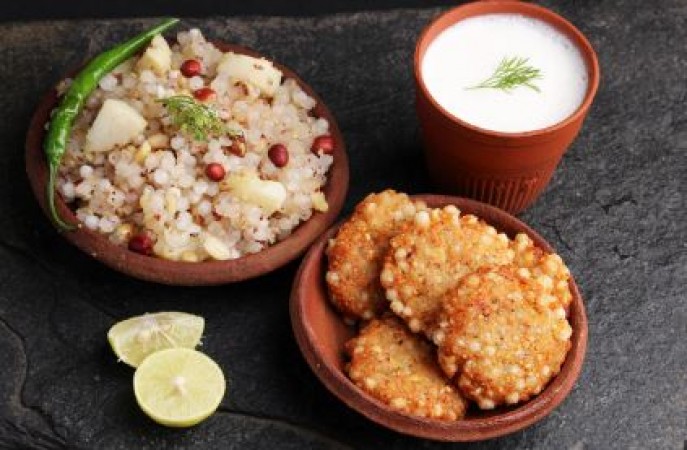
The month of Sawan, starting on July 22, 2024, is a period of deep devotion for many, particularly in worship of Lord Shiva. Observing fasts, such as those on Mondays or during Mangala Gauri Vrat, is a common practice. While fasting is seen as both a spiritual and healthful endeavor, it’s crucial to be mindful of your diet during this time to avoid digestive issues such as gas and bloating. Here’s a detailed guide on which foods to avoid and how to manage your diet effectively during the fast.
Foods to Avoid During Sawan Fasts
Tea and Coffee
Why Avoid: Consuming tea or coffee during fasting can lead to acidity and digestive discomfort. These beverages increase stomach acid production, which can cause heartburn, acid reflux, and an overall uncomfortable feeling.
Alternative: Opt for herbal teas or simply drink warm water. Herbal teas like peppermint or ginger can aid digestion and are generally easier on an empty stomach.
Fried Snacks
Why Avoid: Fried snacks, such as potato chips or tikki, can cause gas and bloating when consumed on an empty stomach. The high oil content and processing can exacerbate digestive issues.
Alternative: Choose light, non-fried snacks such as fresh fruit, soaked nuts, or puffed rice. These options are gentler on the stomach and less likely to cause bloating.
Packaged Snacks
Why Avoid: Many packaged snacks, even those labeled as suitable for fasting, can be high in salt, preservatives, and unhealthy fats. These can not only be bad for your health but also may not be prepared in hygienic conditions.
Alternative: Prepare your own snacks at home, such as fruit salads or yogurt with a touch of honey, which are fresher and more nutritious.
Dairy Products
Why Avoid: While dairy products like milk and paneer are nutritious, they can cause heaviness and discomfort if consumed in large quantities during fasting. Full-fat dairy can particularly contribute to digestive issues.
Alternative: If you consume dairy, choose low-fat or plant-based alternatives. For instance, almond milk or low-fat yogurt can be easier on the stomach.
Tips for Breaking the Fast
Avoid Heavy and Spicy Foods
Why Avoid: Breaking your fast with heavy, spicy, or fried foods can lead to indigestion and bloating. Your digestive system, after being inactive for a long period, may struggle to handle such foods.
Alternative: Start with a light meal consisting of easily digestible foods like plain yogurt, cooked vegetables, and a small portion of rice. Gradually introduce more complex foods as your stomach adjusts.
Follow the 20/80 Rule
What It Is: This rule suggests eating until you feel about 80% full and then stopping. This approach helps prevent overeating, which can lead to digestive problems.
How to Implement: Eat slowly and mindfully, paying attention to your body's hunger cues. This practice not only helps with digestion but also prevents overloading your system after a period of fasting.
Stay Hydrated
Why It’s Important: Proper hydration is crucial during fasting to maintain electrolyte balance and prevent constipation. Water aids digestion and helps your body process food more efficiently.
How to Hydrate: Drink plenty of water throughout the day, especially before and after your fasting period. Herbal infusions or flavored water (with slices of fruit) can also be beneficial.
Incorporate Light Meals
Why It Helps: Consuming light meals with moderate spices and oils ensures that your stomach doesn’t get overwhelmed. This approach aids in smooth digestion and reduces the risk of bloating.
Examples: Opt for meals like a simple vegetable soup, steamed vegetables with minimal oil, or a small serving of khichdi. These options are nutritious yet easy on the stomach.
General Tips for Digestive Health During Fasts
Eat Smaller Portions More Frequently: Rather than having large meals, consider eating smaller portions more frequently to avoid overloading your digestive system.
Include Probiotics: Consuming probiotic-rich foods like yogurt can support gut health and improve digestion.
Exercise Moderately: Gentle exercises like walking can help stimulate digestion and reduce bloating. Avoid vigorous workouts that may disrupt your fasting routine.
By following these dietary guidelines and paying attention to your body’s needs, you can enjoy the spiritual benefits of Sawan fasting while minimizing digestive discomfort. Balancing your diet with mindful eating practices will help you stay comfortable and focused throughout this sacred month.
Unlock the Power of Cashews: Soak Them in Milk for a Week to Reap Amazing Health Benefits!